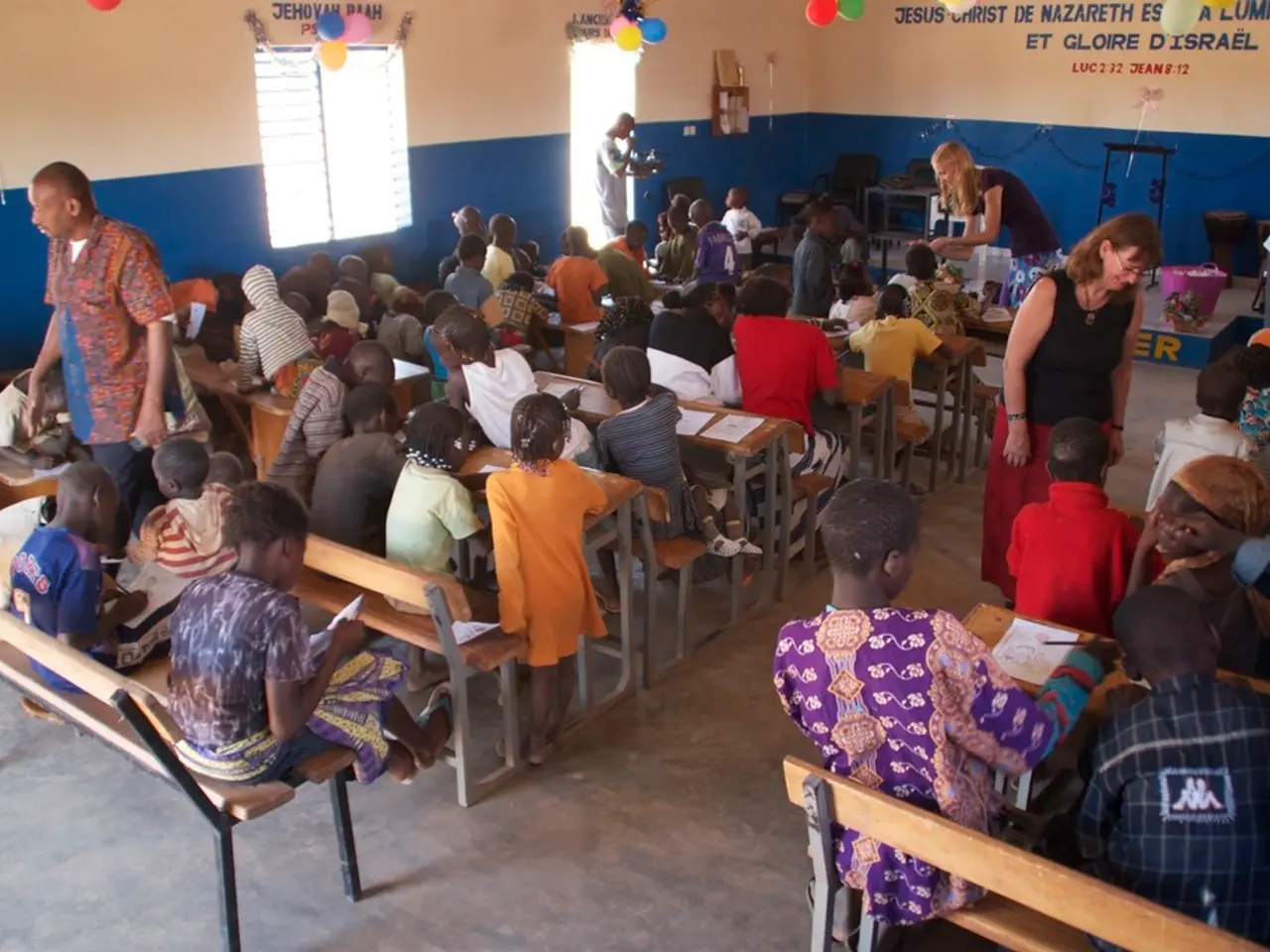Special Care Options for Children with Special Needs: Locating Ideal Child Care Solutions
In the realm of childcare, providing an inclusive and nurturing environment for all children is of utmost importance. This is especially true for children with learning disabilities, who require unique attention and adaptations to ensure their safety, well-being, and successful development.
Research shows that a well-trained childcare worker is the cornerstone of a safe and stimulating play environment. With continuous professional development, they can implement flexible timetables, create quiet spaces, use accessible play equipment, and engage in strategies that cater to each child's individual needs.
Flexible timetables are a key aspect of this approach. Childcare providers can offer part-time attendance options and adaptable routines that consider a child's energy levels, medical needs, and attention span. This approach, highlighted in school settings, emphasizes collaboration with families and healthcare professionals to develop individualized plans that accommodate the child's fluctuating needs and facilitate reintegration after absences.
Establishing designated calm areas is also crucial. These spaces provide children with a retreat to self-regulate or escape sensory overload. Environments should be adapted to minimize distractions and sensory stimuli, enabling children to engage comfortably and successfully within the program.
Accessible play equipment is another essential element. Childcare centers should ensure play materials and equipment accommodate various physical and sensory abilities. This includes adaptive toys and equipment designed to be inclusive, encouraging positive peer interaction and development in a safe environment tailored to the child's needs.
Ongoing training in inclusive practices, self-regulation strategies, and understanding specific disabilities is vital. Childcare staff should receive customized workshops and coaching from specialists to implement best practices effectively and adapt environments, activities, and behavior strategies accordingly.
Collaboration with families and specialists is another important aspect. Maintaining communication with parents, therapists, and medical providers helps tailor care plans and ensures consistent support across environments. The use of Individual Healthcare Plans or similar tools facilitates personalized approaches, allowing flexibility and adjustments in programming to meet each child's unique needs.
In the UK, thousands of children have a diagnosed learning disability. To cater to this diverse population, online childcare courses are available for specific topics such as working with children with physical disabilities, learning disabilities, Autism, and ADHD.
Non-slip flooring is important for children who use walking aids or have mobility issues. Moreover, inclusivity in childcare extends beyond staff understanding disabilities; it also involves other children in the care.
Charities and support groups advocate that childcare workers should not be afraid to ask questions or seek feedback from parents, caregivers, or the child, if appropriate. Using different colours to define areas in a nursery can aid children with disabilities in navigating the space.
In conclusion, adapting services for special needs children requires a systemic approach combining flexible scheduling, inclusive physical environments, adaptive resources, and well-trained staff supported by external expertise and family partnerships. Programs like the Inclusion Support Program provide frameworks and resources for achieving these goals in childcare settings.
A dedicated childcare worker with continuous education in education-and-self-development, such as childcare courses focusing on working with children with learning disabilities, can effectively enhance their understanding of unique needs and implement personalized strategies. Additionally, personal-growth arises from ongoing training in inclusive practices, self-regulation strategies, and understanding specific disabilities, ensuring a nurturing environment where every child thrives.




